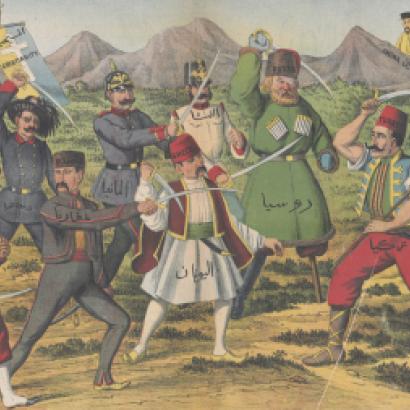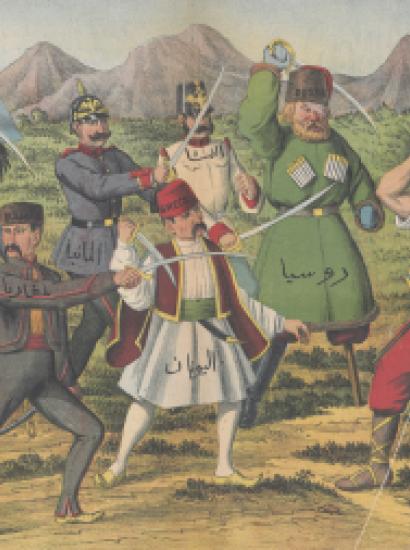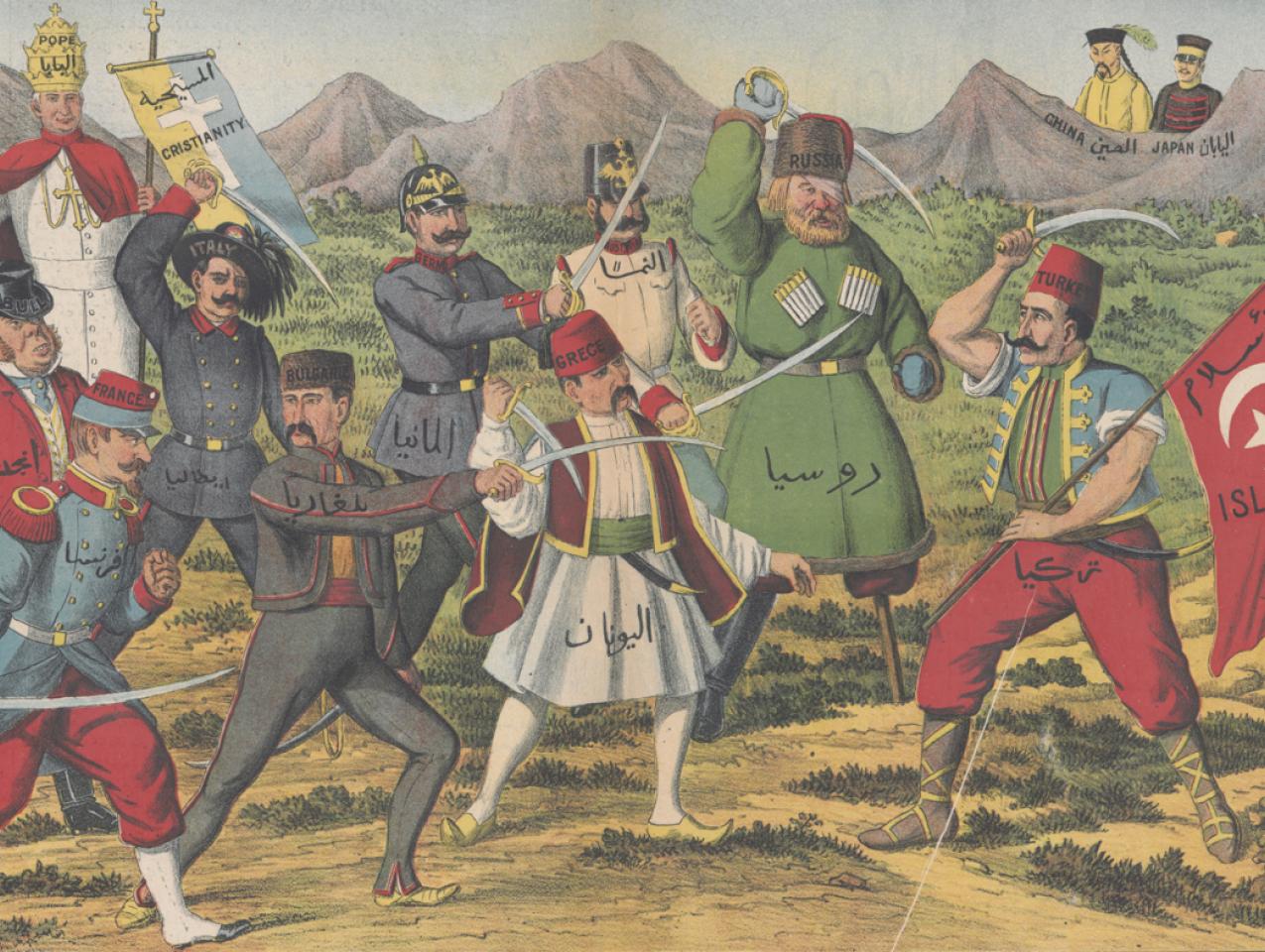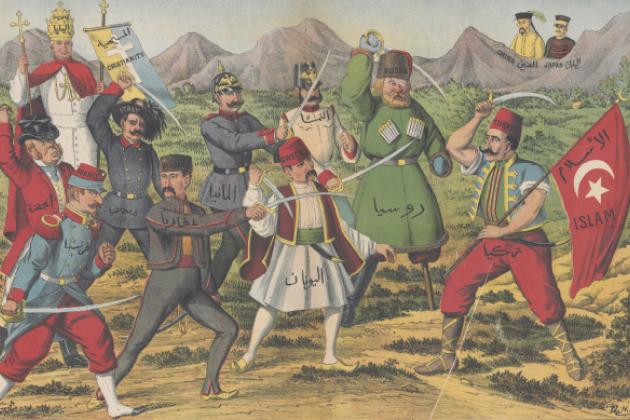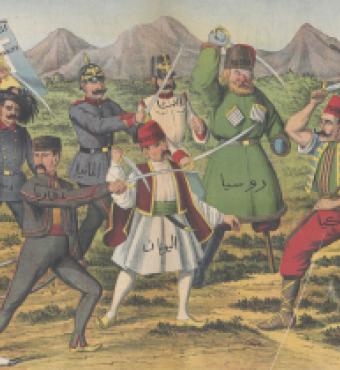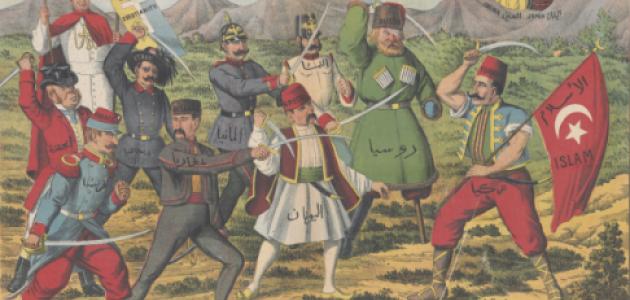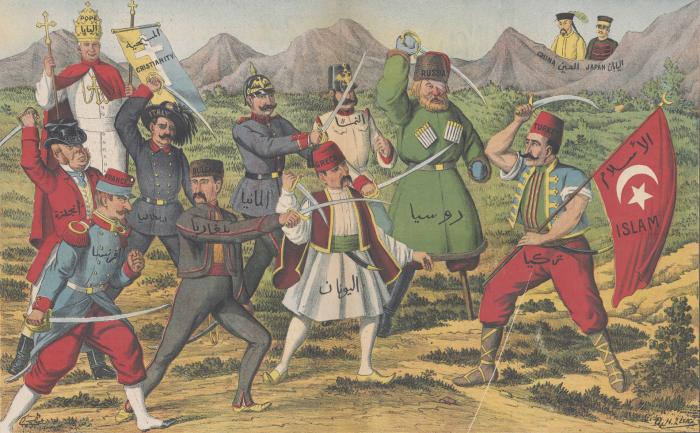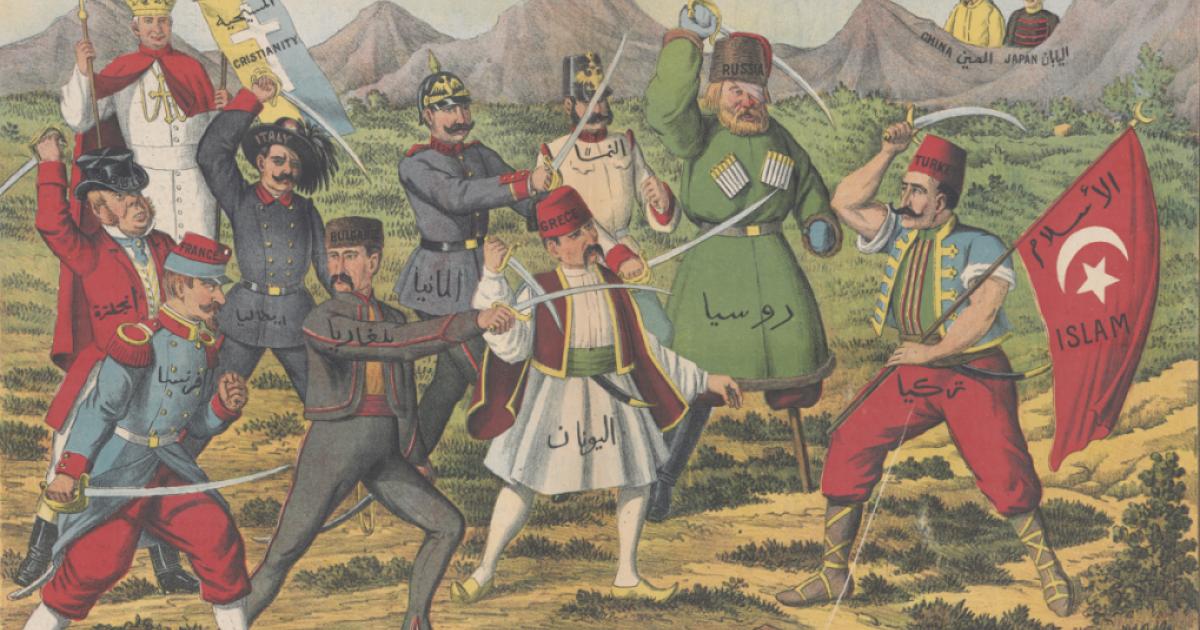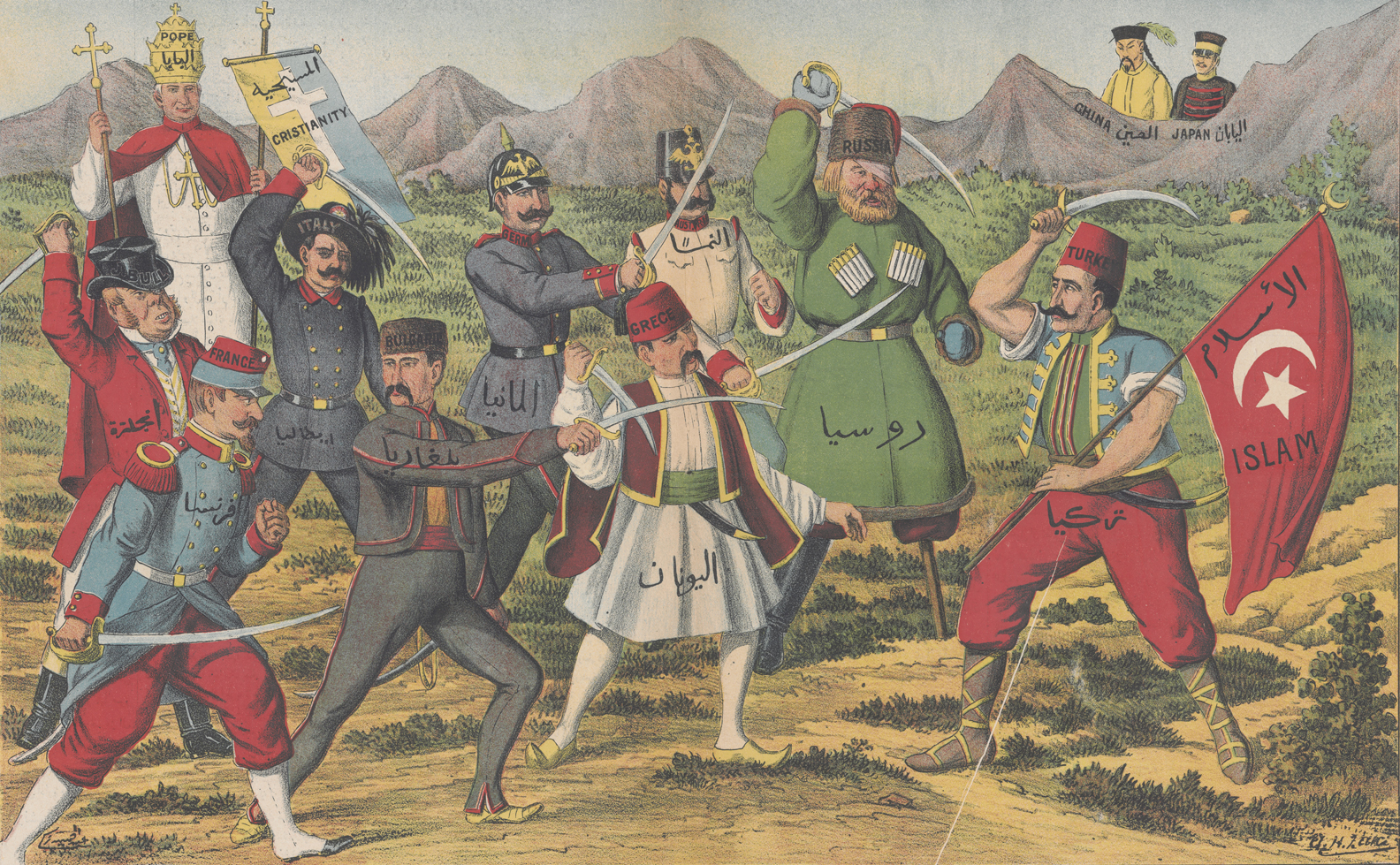
Almost a century has passed since the Ottoman Empire was dismembered and Mustafa Kemal set out to build the modern Turkish state on its ruins. Twenty years ago, no one in the West would have called into question the achievement of the man who eventually, with considerable justice, styled himself Atatürk (“Father of the Turks”). But many now fear that the political and cultural revolution he instigated in the 1920s will be overturned and that Turkey will cease to function as normal nation state, turn on the West, and try to upend the existing order in the eastern Mediterranean, the Balkans, and the Middle East.
Atatürk’s ambition as a statesman was breathtaking. He wanted to reconfigure what was left of the Ottoman Empire as a nation state on the European model, and this required that he drag the population of Anatolia and of what remained of the Ottoman Empire’s European holdings into a new and unfamiliar world incompatible with traditional Islam. To this end, he effected the abolition of Sultanate, then the Caliphate, the Ministry of Religious Affairs, and the religious schools. Taking the Third Republic of France as a model, he confined religion to the private sphere, put Sunni Islam on a leash, and instituted secular schools. He purged Turkish of Arabic loans words and substituted for the Perso-Arabic script hitherto employed the Latin alphabet. He abolished the religious courts, and, in place of the shariah, he established a legal system modelled on the law codes of Switzerland, Italy, France, and Germany. He suppressed the religious brotherhoods, outlawed the fez, and he brought women into the public sphere. He enfranchised them, saw to it that there was a common curriculum in the schools for both girls and boys, and encouraged their entry into the professions. At the same time, he did everything within his power to encourage the people of his new republic to think of themselves first and foremost as Turks, not Muslims.
Atatürk failed in one particular. Islam was resilient. Every time that he allowed or encouraged the introduction of competitive party politics, one of the parties drifted in the direction of traditional Islam, and on two separate occasions he found himself forced to return to one-party rule. When his hand-picked successor Ismet Inönü repeated the experiment under American pressure after World War II and genuinely free elections began to take place in 1950, the same development took place, and over the next fifty years this propensity led to repeated interventions in public life by Turkey’s fiercely Kemalist military.
In the last two decades of the twentieth century, however, the Kemalist establishment gradually gave ground in the hopes of reaching an accommodation with Islam. New mosques were built, the schools set up to train religious teachers were greatly expanded in number, and a blind eye was turned the resurgence staged by the religious brotherhoods. For a time, in the 1980s when Turgut Özal dominated Turkish politics, it looked as if Muslim piety could be reconciled with secular politics and the Kemalist aspiration that Turkey join Europe and become part of the West.
But in November 2002—thanks to misgovernment and corruption on the part of the center-right parties, to a series of recessions that bedeviled Turkey in the 1990s, and to an unpopular austerity program imposed on the country by a center-right coalition in 2001—the newly founded Justice and Development Party (AKP) received more than one-third of the votes—which, thanks to a constitutional provision barring from the assembly splinter parties with under 10% of the vote, unexpectedly gave it a commanding majority in Turkey’s parliament. Led by Recep Tayyip Erdoğan and Abdullah Gül, who had been adherents of the hardline Islamist Welfare Party, the AKP presented itself as a moderate party sympathetic to Islam, hostile to corruption, committed to free markets, and intent on negotiating Turkey’s entrance into the European Union; and for some years it governed in this spirit, fueling a period of rapid economic growth and winning one election after another.
As time passed, however, the AKP moved unobtrusively in an Islamist direction while Erdoğan concentrated power in his own hands. The man was a brilliant practitioner of salami tactics with a gift for exploiting the antagonisms that had come to divide his compatriots. At the outset, he neutered the opposition parties of the center right. Thereafter, with firm support from Turkish liberals and from the adherents of the charismatic religious teacher Fethullah Gülen, he cowed the Kemalists who had hitherto dominated the bureaucracy, the courts, and the military, then drove them from public life. Thereafter, he discarded the liberals and suppressed much of the opposition press. And, finally, he sidelined Gül and his other rivals in the AKP; crushed, then purged his onetime allies in the Gülenist movement; and secured constitutional changes that transformed Turkey into a presidential republic. Now, thanks to his election on 24 June to that republic’s transformed presidency, Recep Tayyip Erdoğan is a virtual dictator—a neo-Ottoman Sultan, authorized to rule by decree, who is unchallenged and unchallengeable, perched atop a country that in recent decades has become an economic powerhouse and a force in the world.
There can be no doubt that relations between Turkey and its erstwhile partners in Europe and on the North American continent will continue to be prickly, as they have been for some time. Erdoğan’s self-regard knows few limits, and he enjoys throwing his weight around. Moreover, he takes delight in bullying the Europeans and in sticking a finger in the eye of the Americans. On the world stage, he parades as the defender of Muslims everywhere. Within the Arab world, he provides support to the Muslim Brotherhood. He plays footsie with the mullahs of Iran and with Vladimir Putin of Russia. And, at 64, he is apt to be around for at least ten to fifteen years—long enough, some suppose, to allow him to reverse the revolution wrought by Atatürk.
There are, however, constraints. Erdoğan is already using Turkey’s schools and universities to indoctrinate the country’s young in the rubrics of traditional Islam. He may outlaw the production and sale of alcohol and prohibit women from dancing with men. He may force Turkey’s secularist intelligentsia into exile; and in 2023, on the hundredth anniversary of its abolition, he may well restore the Caliphate and assume the office himself.
I doubt, however, that in Turkey shariah will once again become the law of the land, that Arabic script will replace the Latin alphabet, and that girls will be expelled from the schools and women will be driven from the public sphere. Such an upheaval is beyond Erdoğan’s capacity. Almost half of his compatriots hate their new Sultan, and Turkey is now a middle-class land characterized by universal literacy. Thanks to its dependence on the global economy, it is increasingly open to outside influences; and young Turks are apt to become restive if too severe a regimen is imposed.
Turkey also faces geopolitical constraints. It is situated in a dangerous and unstable corner of the world, and in the east it is faced with a Kurdish insurrection that has worsened on Erdoğan’s watch. Moreover, although its neighbors are happy to play the Turks against their NATO allies, their ambitions are incompatible with those of Erdoğan. Thanks to the Sunni-Shiite divide, the Islamic revivalists in Iran and those in Turkey will eventually be at daggers drawn. Russia has always been Turkey’s enemy. And the Sunni Arab world ranged along much of Turkey’s eastern border is a quagmire. Erdoğan may fancy himself the Commander of the Faithful, but the faithful outside Turkey are not going to accept his command. The country he leads is increasingly isolated, and it does not have the wherewithal to go it alone—especially since the Turkish economy is highly dependent on investment from abroad and on foreign trade. Almost anything ambitious that Erdoğan attempts beyond Turkey’s borders is likely to end in tears.
Mortality is, of course, the ultimate constraint. Erdoğan is most unlikely to exit the scene voluntarily. But the grim reaper will some day present himself, and Turkish culture and politics is patriarchal. Apart from Atatürk’s Republican Peoples Party, no Turkish party has ever survived the demise of its presiding spirit. There will be an opening when Erdoğan is ushered off the stage. There will be an opportunity, and there will be a correction of course. The Turks are not now and never have been a servile lot, and their new Sultan is almost certain to overstay his welcome. Unless Islam really is the answer, the path to modernity charted by Atatürk is apt in the years to come to look more and more attractive. The alternative chosen by Erdoğan is bound to re-introduce into Turkey the pathologies that have for centuries beset the rest of the Middle East.







